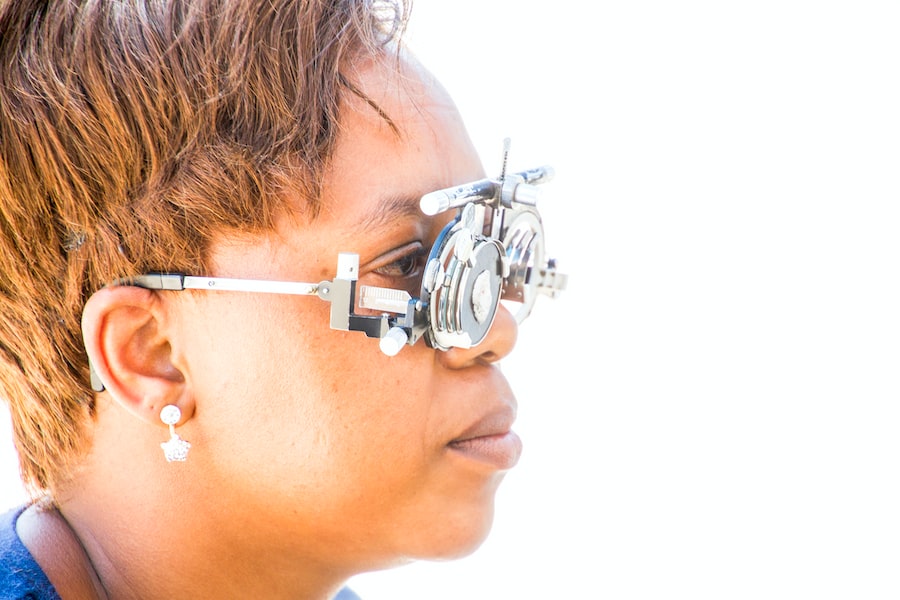Hearing health is a crucial aspect of overall well-being that is often overlooked. Our ability to hear allows us to communicate, connect with others, and navigate the world around us. Unfortunately, many people neglect their hearing health until they start experiencing problems. This blog post aims to highlight the importance of regular hearing tests and provide information on what to expect during a hearing test.
Importance of Hearing Tests
Hearing tests are essential for detecting any potential hearing loss or other auditory issues. Regular hearing tests can help identify problems early on, allowing for timely intervention and treatment. Untreated hearing loss can have significant consequences on an individual’s quality of life. It can lead to social isolation, communication difficulties, and even cognitive decline.
Types of Hearing Tests
There are several types of hearing tests that audiologists use to assess an individual’s hearing abilities. The most common types include pure-tone audiometry, speech audiometry, and tympanometry.
Pure-tone audiometry involves wearing headphones and listening to different tones at various frequencies and volumes. The individual indicates when they can hear the sound, allowing the audiologist to determine their hearing thresholds.
Speech audiometry assesses an individual’s ability to understand speech. The person listens to recorded words or sentences at different volumes and repeats them back. This test helps determine the individual’s speech reception threshold and word recognition score.
Tympanometry measures the movement of the eardrum in response to changes in air pressure. It helps identify any issues with the middle ear, such as fluid buildup or eardrum abnormalities.
Preparation for a Hearing Test
Before going for a hearing test, there are a few things you can do to prepare. First, make sure you have a list of any medications you are currently taking, as some medications can affect hearing. It is also helpful to write down any specific concerns or symptoms you have been experiencing related to your hearing.
Additionally, it is important to bring any previous hearing test results or medical records related to your hearing health. This information can provide valuable insights to the audiologist and help them make an accurate diagnosis.
What to Expect During a Hearing Test
During a hearing test, you will be taken to a soundproof booth or room. The audiologist will explain the different tests they will be conducting and answer any questions you may have. They will then proceed with the tests, which may include pure-tone audiometry, speech audiometry, and tympanometry.
For pure-tone audiometry, you will wear headphones and listen for different tones at various frequencies and volumes. You will indicate when you can hear the sound by pressing a button or raising your hand.
Speech audiometry involves listening to recorded words or sentences at different volumes and repeating them back. This test assesses your ability to understand speech.
Tympanometry is a painless test that measures the movement of your eardrum in response to changes in air pressure. A small probe is placed in your ear, and you may feel a slight pressure or fullness sensation.
The entire hearing test typically takes around 30 minutes to an hour, depending on the complexity of the tests being conducted.
Interpreting Your Hearing Test Results

After completing the hearing tests, the audiologist will analyze the results and explain them to you. They will discuss your hearing thresholds, speech reception threshold, word recognition score, and any abnormalities detected during tympanometry.
Hearing test results are typically presented on an audiogram, which is a graph that shows your hearing thresholds at different frequencies. The audiologist will explain how to read and interpret the audiogram, highlighting any areas of concern or significant hearing loss.
Based on the results, the audiologist will provide recommendations for further treatment or intervention if necessary. They may suggest hearing aids, assistive listening devices, or refer you to a specialist for further evaluation.
Common Hearing Problems and Solutions
There are several common hearing problems that individuals may experience, including age-related hearing loss, noise-induced hearing loss, and conductive hearing loss.
Age-related hearing loss, also known as presbycusis, is a gradual loss of hearing that occurs as a natural part of aging. It is typically characterized by difficulty hearing high-pitched sounds and understanding speech in noisy environments. Treatment options for age-related hearing loss include hearing aids and assistive listening devices.
Noise-induced hearing loss is caused by prolonged exposure to loud noises. It can occur in individuals of all ages and is often preventable. Solutions for noise-induced hearing loss include wearing ear protection in loud environments and limiting exposure to loud noises.
Conductive hearing loss occurs when there is a problem with the outer or middle ear that prevents sound from reaching the inner ear. It can be caused by conditions such as ear infections, fluid buildup, or blockages. Treatment options for conductive hearing loss depend on the underlying cause and may include medication, surgery, or the use of hearing aids.
Choosing the Right Hearing Aid
If you are diagnosed with hearing loss and recommended to use hearing aids, it is important to choose the right one for your specific needs. There are several factors to consider when selecting a hearing aid, including your lifestyle, budget, and degree of hearing loss.
There are different types of hearing aids available, including behind-the-ear (BTE), in-the-ear (ITE), and completely-in-the-canal (CIC) styles. BTE hearing aids are suitable for individuals with severe to profound hearing loss and offer more power and features. ITE and CIC styles are more discreet but may have limitations in terms of power and battery life.
It is recommended to consult with an audiologist or hearing healthcare professional who can guide you in choosing the right hearing aid based on your specific needs and preferences.
Finding an Audiologist Near You
When it comes to your hearing health, it is important to find a qualified audiologist who can provide accurate assessments and appropriate treatment options. There are several ways to find an audiologist near you.
You can start by asking for recommendations from your primary care physician or friends and family who have had positive experiences with audiologists. Online directories and professional organizations, such as the American Academy of Audiology, can also provide a list of certified audiologists in your area.
When choosing an audiologist, consider their qualifications, experience, and the services they offer. It is also important to ensure that they have a good reputation and positive reviews from previous patients.
Taking Care of Your Hearing Health
In conclusion, taking care of your hearing health is crucial for maintaining overall well-being. Regular hearing tests can help detect any potential issues early on, allowing for timely intervention and treatment. Untreated hearing loss can have significant consequences on an individual’s quality of life, including social isolation and communication difficulties.
By understanding the different types of hearing tests, preparing for appointments, and interpreting the results, individuals can take an active role in their hearing health. Seeking treatment for hearing problems, such as using hearing aids or assistive listening devices, can greatly improve quality of life and prevent further deterioration of hearing abilities.
Remember to prioritize your hearing health and seek professional help if you have any concerns or symptoms related to your hearing. By taking proactive steps towards maintaining good hearing health, you can continue to enjoy the sounds of life for years to come.
If you’re interested in learning more about hearing tests in Ipoh, you may want to check out this article on “The Sound Solution: Unveiling the Top Audiologist in Malaysia.” This informative piece provides insights into the top audiologists in the country and their expertise in addressing hearing issues. To read more about it, click here. Additionally, you can also explore other articles on hearing care and solutions at HearCare Malaysia.
FAQs
What is a hearing test?
A hearing test is a medical examination that measures a person’s ability to hear sounds. It is usually conducted by an audiologist or a hearing healthcare professional.
Why is a hearing test important?
A hearing test is important because it can detect hearing loss early on, which can prevent further damage to the ears. It can also help identify the cause of hearing loss and determine the best course of treatment.
Who should get a hearing test?
Anyone who is experiencing hearing loss or has a family history of hearing loss should get a hearing test. It is also recommended that adults get a hearing test at least once every ten years until the age of 50, and then every three years after that.
What happens during a hearing test?
During a hearing test, the audiologist or hearing healthcare professional will use various tests to measure a person’s ability to hear sounds of different frequencies and volumes. These tests may include pure-tone audiometry, speech audiometry, and tympanometry.
Is a hearing test painful?
No, a hearing test is not painful. It is a non-invasive procedure that involves wearing headphones and responding to sounds.
Where can I get a hearing test in Ipoh?
There are several clinics and hospitals in Ipoh that offer hearing tests. You can search online or ask your doctor for a referral.

